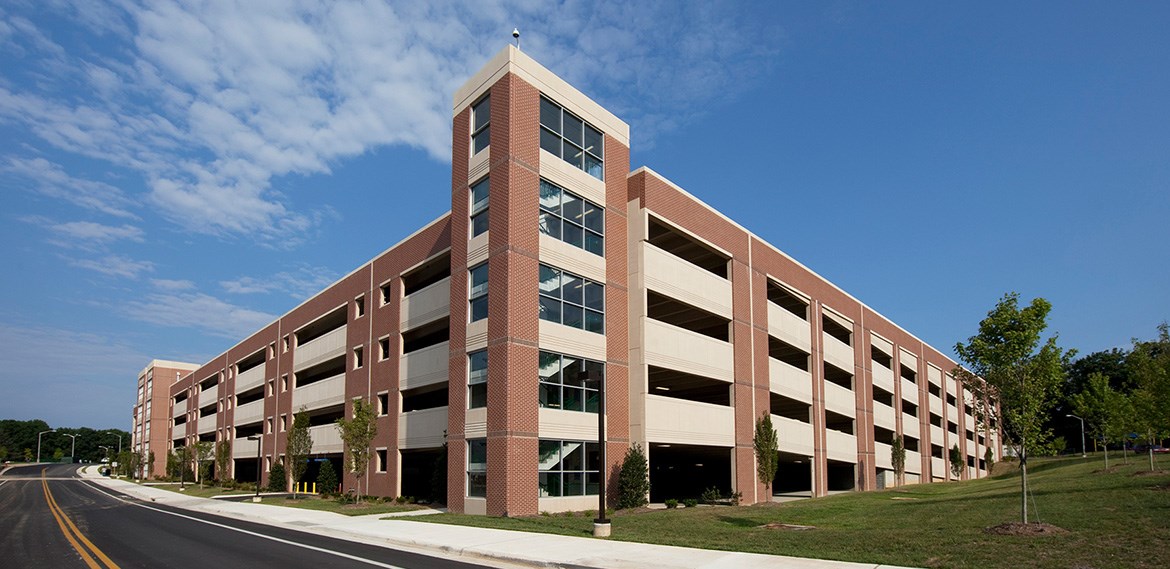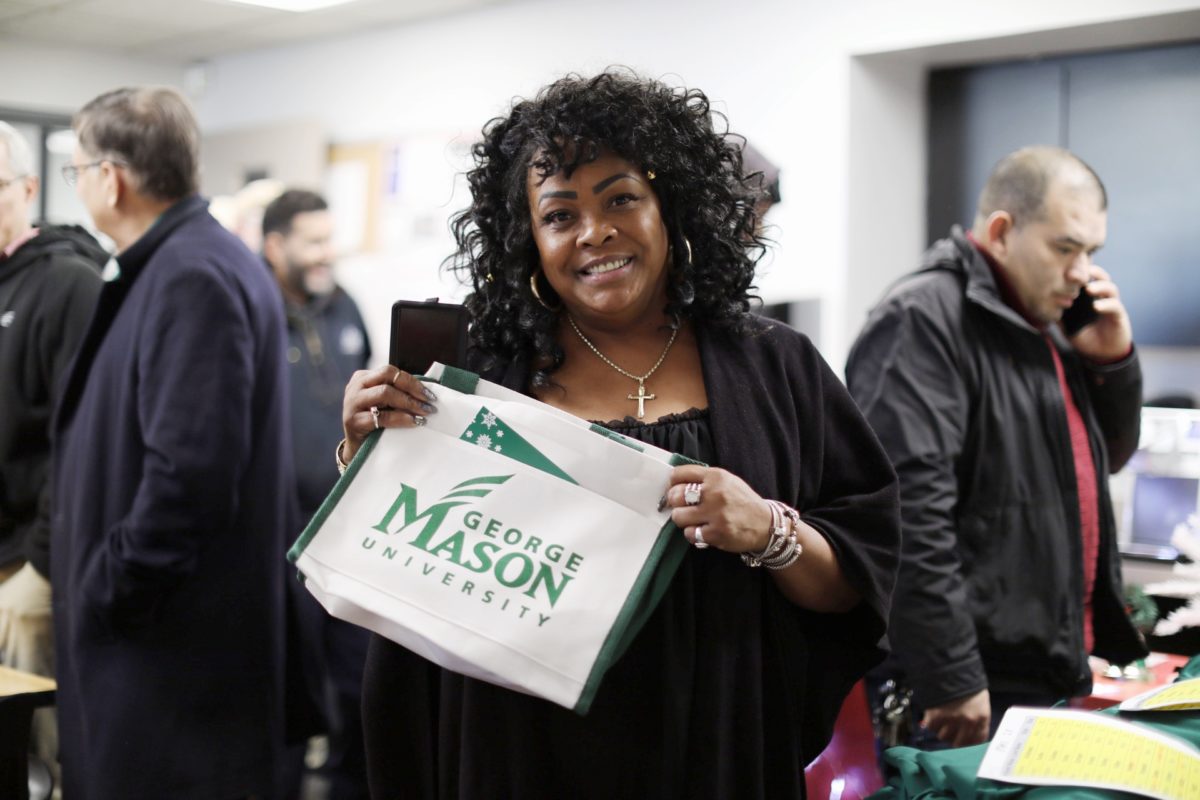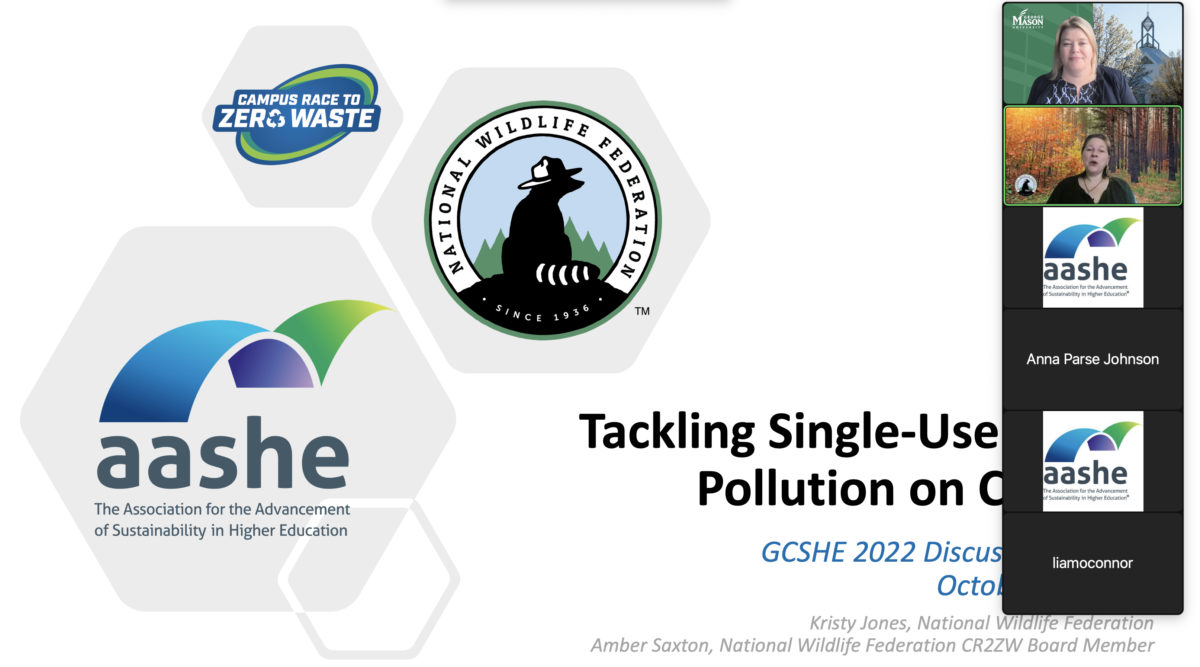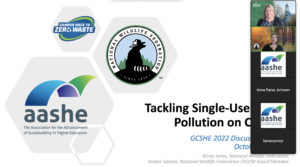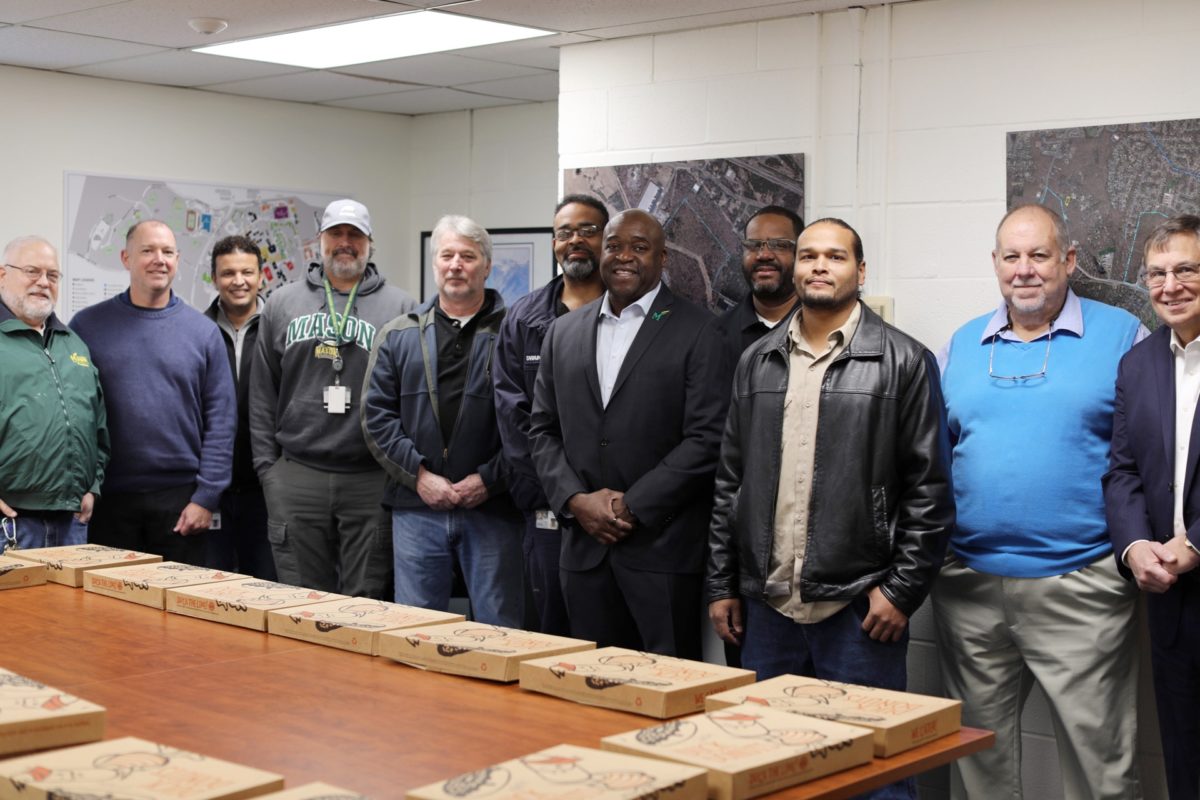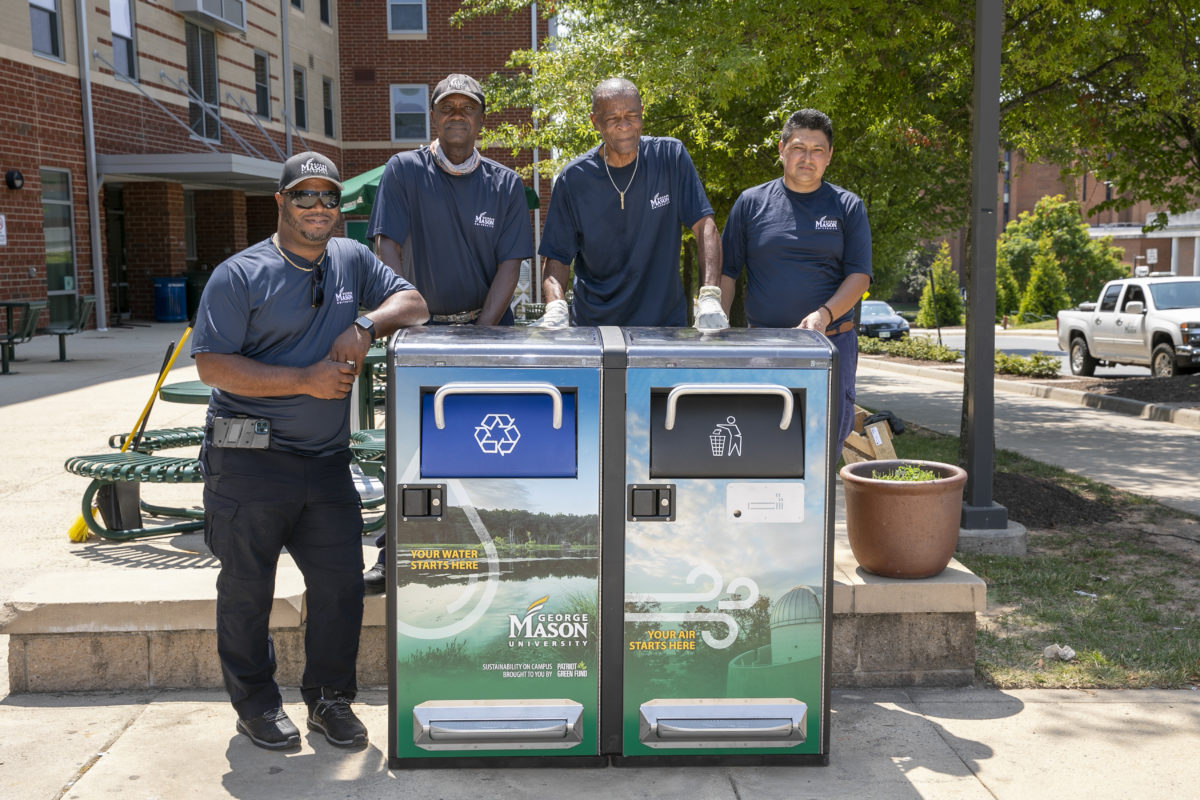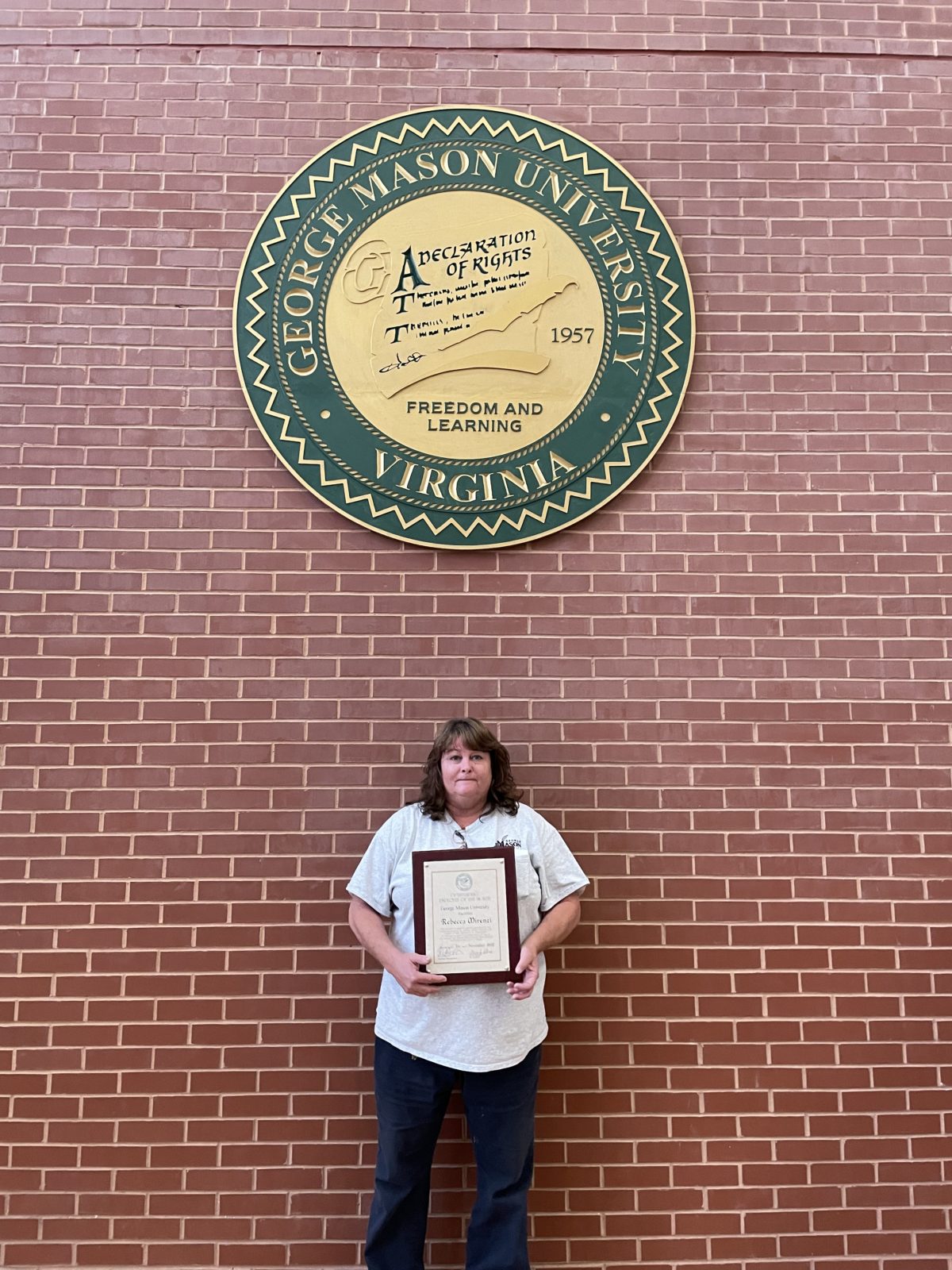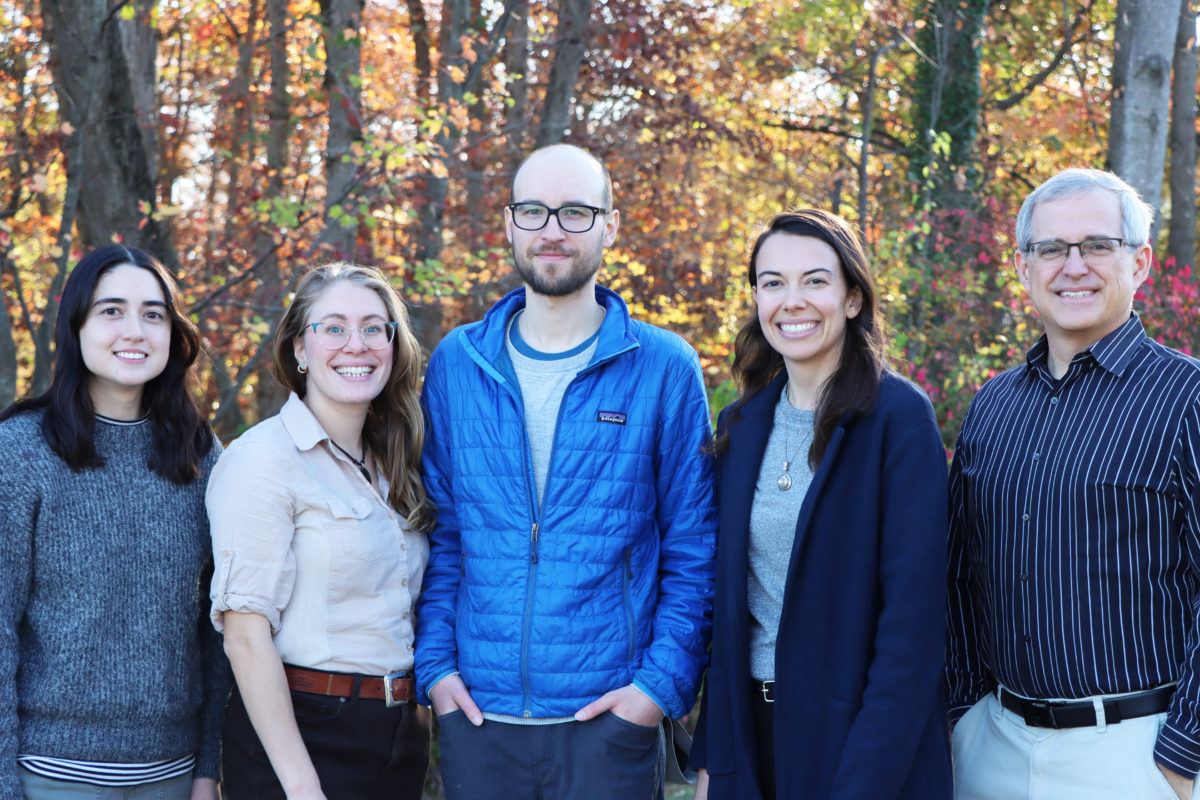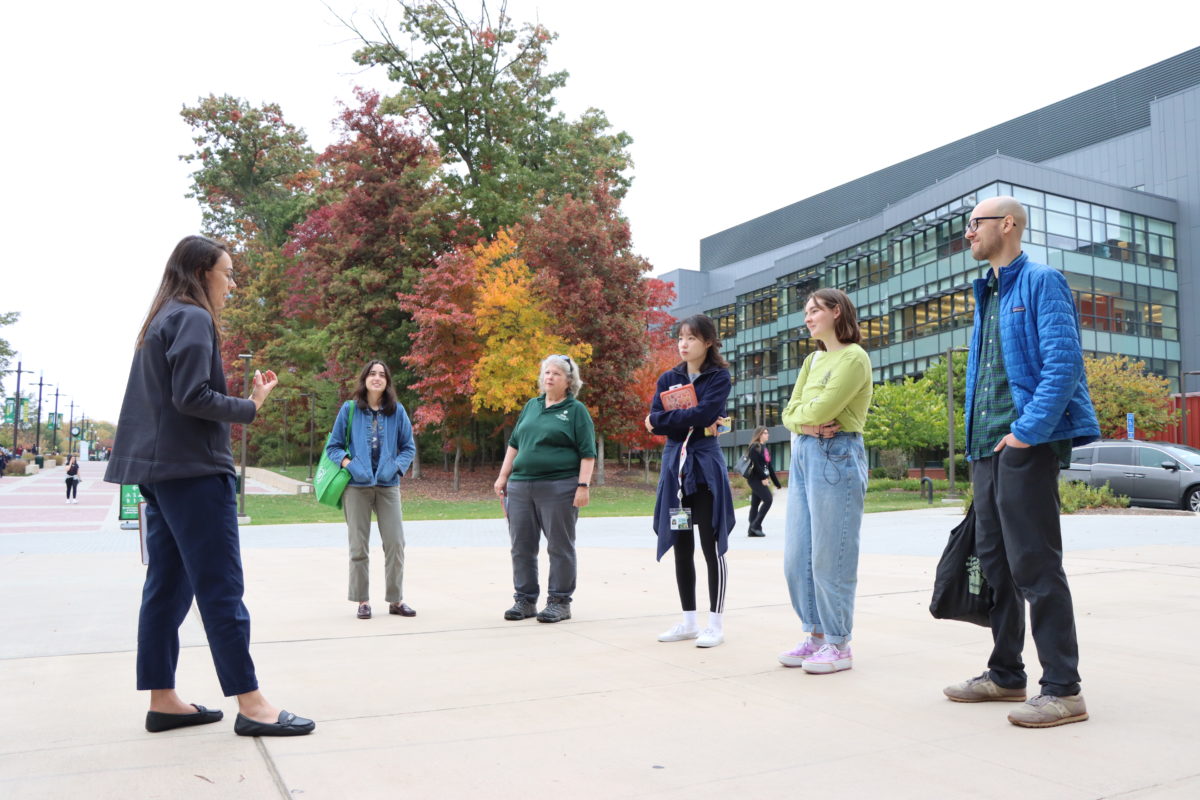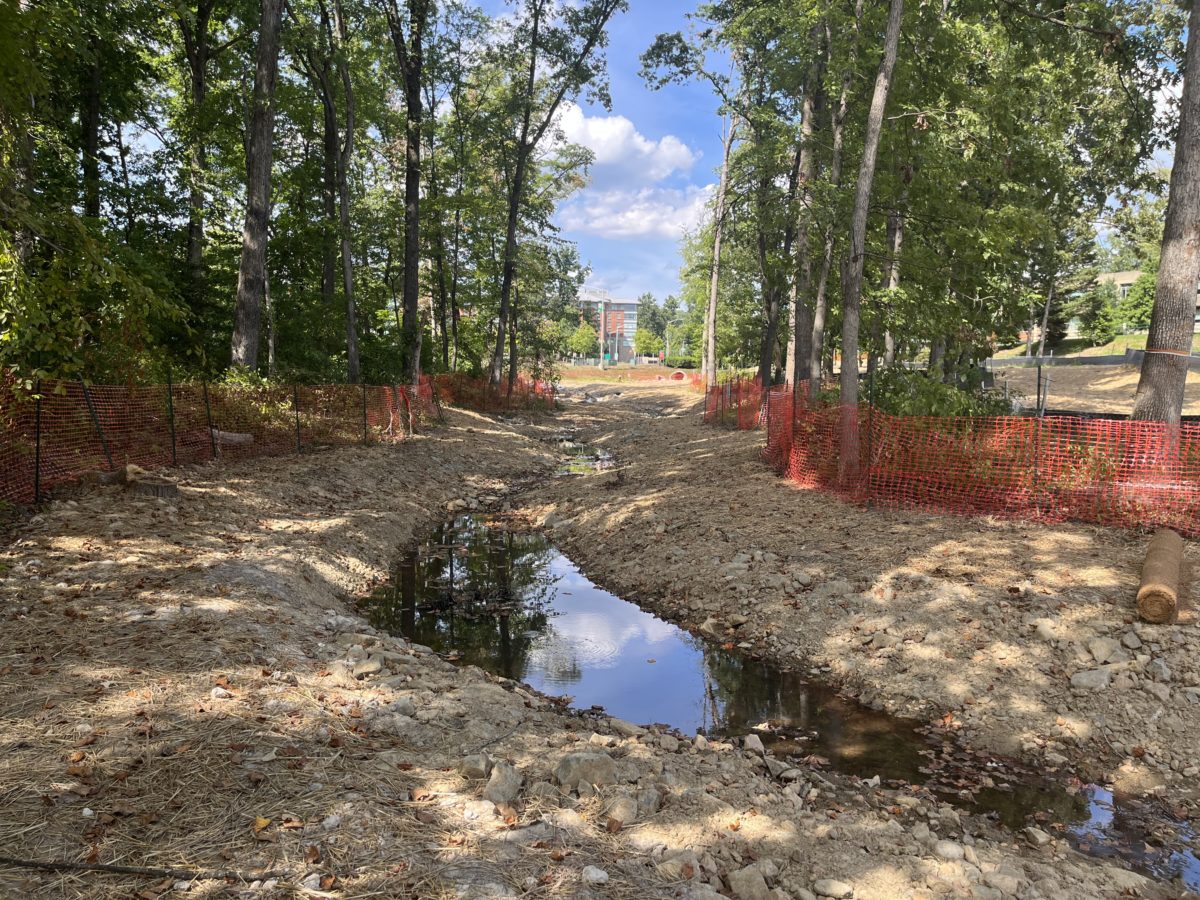Mason Facilities transitioned to LED lighting at the Fairfax Campus’s Rappahannock River parking deck – replacing over six hundred fluorescent light fixtures. Mason’s new LED lighting offers consistent illumination, glare control, and significant energy savings. “The Lithonia LED light fixture spreads light evenly and further to improve the overall photometrics of the older fluorescent fixtures. This fixture also reduces glare from the light fixture that would make it easier on the motorist navigating through the parking garage. The lighting fixtures are equipped with a motion activation feature – remaining dim until motion is detected, resulting in considerable energy savings,” said Christopher Thorpe, Electrical Supervisor. Mason Facilities, in partnership with Parking Services, worked diligently over the span of five months to successfully complete the installation. The new parking deck lighting greatly enhances both the parking experience and safety for Mason community members.
